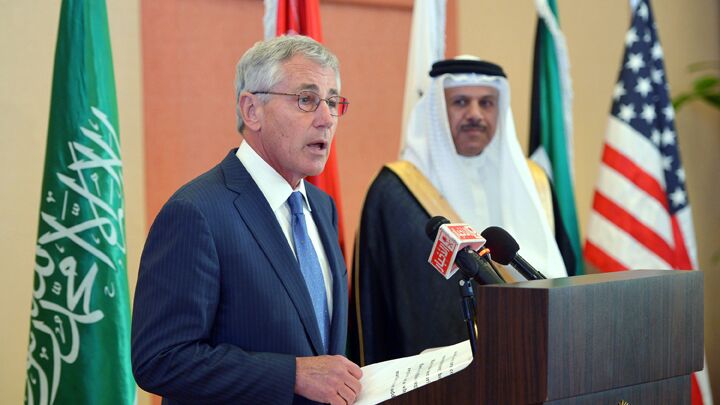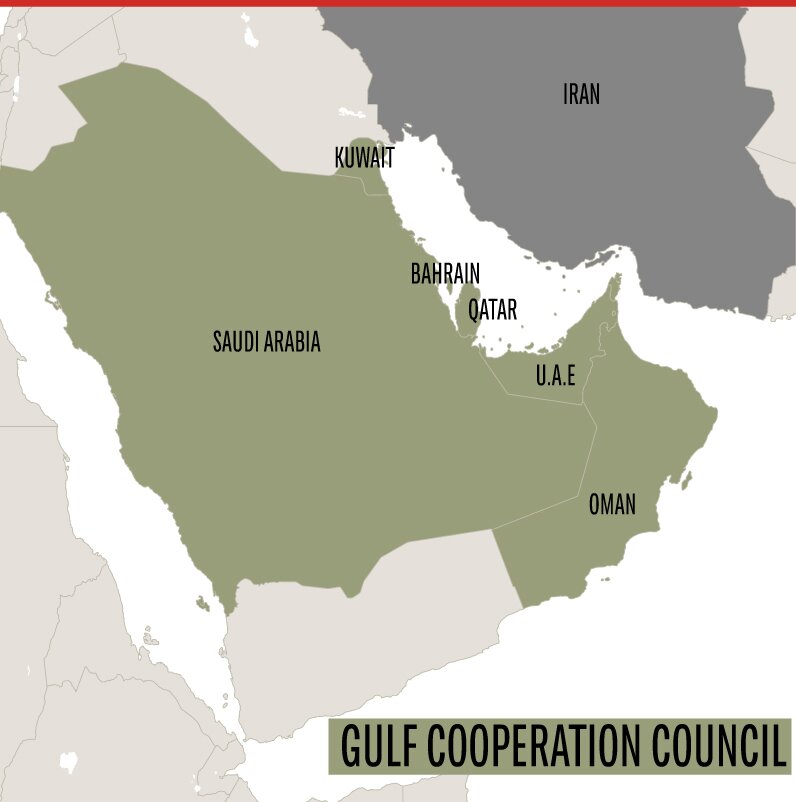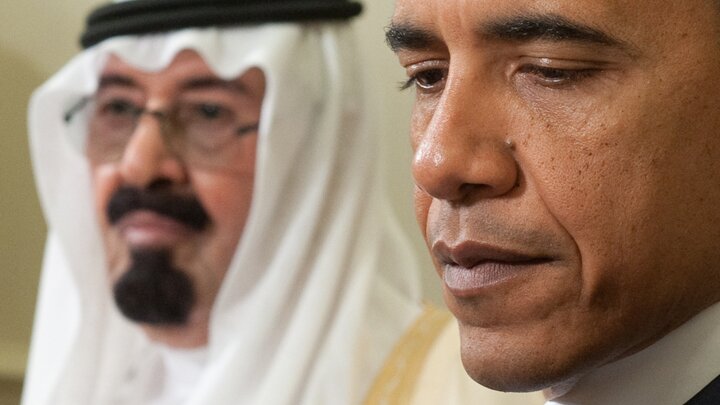
The Danger in U.S. Support of the Gulf Cooperation Council
As nuclear negotiations between Iran and the P5+1 falter, and as time quickly runs out before the July 20 deadline for signing a deal, the United States appears to be ramping up efforts to create a Middle Eastern balance of power to Iran: the Gulf Cooperation Council (gcc).
At a rare meeting of defense ministers of the gcc in Saudi Arabia, U.S. Defense Secretary Chuck Hagel urged the Persian Gulf states to unite and increase their military cooperation. The meeting, held May 14, was the first of its kind, and Hagel hopes it won’t be the last. Secretary Hagel wants this meeting to become an “annual security consultation, and the backbone for renewed cooperation among all the nations of the gcc,” which include Saudi Arabia, Kuwait, Bahrain, Qatar, the United Arab Emirates and Oman.

The goal of cooperation and unity? In Hagel’s words: “This approach is how the region must continue to address the threats posed by Iran,” the region’s biggest antagonist to the U.S. and gcc nations.
The defense secretary proceeded to discuss the progress of the nuclear negotiations in Vienna (or lack thereof), and assured the gcc that whether the negotiations fail or succeed, the United States will continue its military cooperation with the gcc nations. That collaboration will include integrating air and missile defense systems, closer maritime security integration and enhanced cybersecurity cooperation.
Hagel specified that “America’s engagement with Gulf nations is intended to support and facilitate, not replace, stronger multilateral ties within the gcc.” “That,” he explained, “is because the most pressing security challenges threaten this region as a whole—and they demand a collective response. … No one nation can address these threats alone.”
Lately, the gcc has not been as collective and united as desired. This has been primarily because of Qatar’s unpopular support and funding of radical Islam, particularly Egypt’s Muslim Brotherhood. As a symbol of this rift, Saudi Arabia, Bahrain and the United Arab Emirates withdrew their ambassadors to Qatar in March. While the ambassadors have still not returned to Doha, agreements have been made, with U.S. encouragement, to end the dispute. It remains to be seen whether these ideological differences will ever heal. What we see today is a firm push toward stronger gcc unity.
The speech was filled with similar earmarks of unity and of conveying a strong message to “adversaries”—primarily Iran—against their “destabilizing activities” in Iraq and Syria.
The gcc—particularly Saudi Arabia—is weary of Iran and Syria’s Bashar Assad. It has armed and funded the rebels in Syria in its efforts to affect regime change in Damascus. But without substantial help from the United States, its efforts in Syria have not fully succeeded.
The U.S. has tread the path toward arming Syria’s rebels with shrewd caution, given the radical elements making up parts of the opposition. But that may be soon to change. With each passing year, the Syrian rebels have been earning increased international legitimacy. Shortly after the May 14 meeting, Hagel discussed America’s pledge to deepen cooperation by providing aid to a “moderate” Syrian opposition.
Is pushing for a strong and united Gulf Cooperation Council really in America’s best interest? The U.S. and Arabs have never been the best of friends. America is losing Saudi Arabia; its relations with the Arab nation have soured greatly over what the Saudis consider foolish and inept foreign policy decisions by the United States.

This push for gcc unity is suicidal because of the strain on those relations. This is precisely what the Bible prophesies.
A prophecy in Psalm 83 indicates that an alliance of Persian Gulf Arab nations with Turkey and Syria will turn on America. These allied nations “have consulted together with one consent: they are confederate against thee” (verse 5). A common, deep-seated hatred for America will galvanize these nations to unify. This has never happened before, but it’s happening now. And the United States is facilitating it, to its own detriment and to that of its real friends and allies.
Secretary Hagel concluded his speech with a quote from a popular book on Arabic folklore, Kalila wa-Dimna: “[C]ooperation among friends is vital to their survival.” For its own welfare, as well as that of its traditional allies, America needs to choose its friends wisely. Read Gerald Flurry’s article “A Mysterious Prophecy” to see why this Psalm 83 alliance of nations is bad news for America.
